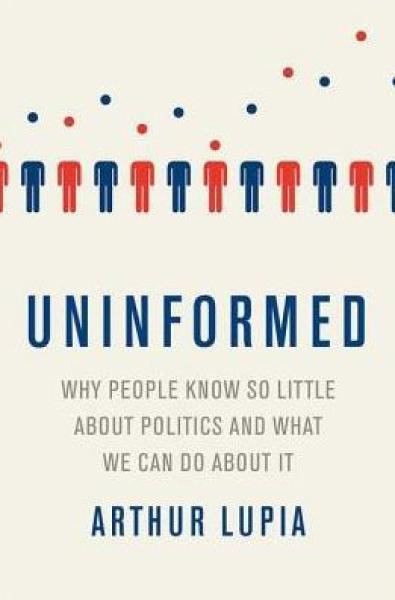Description
As Arthur Lupia shows in Uninformed, this is not constructive. At root, critics of public ignorance fundamentally misunderstand the problem. Many experts believe that simply providing people with more facts will make them more competent voters. However, these experts fail to understand how most people learn, and hence don't really know what types of information are even relevant to voters. Feeding them information they don't find relevant does not address the problem. In other words, before educating the public, we need to educate the educators.
Lupia offers not just a critique, though; he also has solutions. Drawing from a variety of areas of research on topics like attention span and political psychology, he shows how we can actually increase issue competence among voters in areas ranging from gun regulation to climate change. To attack the problem, he develops an arsenal of techniques to effectively convey to people information they actually care about.
Citizens sometimes lack the knowledge that they need to make competent political choices, and it is undeniable that greater knowledge can improve decision making. But we need to understand that voters either don't care about or pay attention to much of the information that experts think is important. Uninformed provides the keys to improving political knowledge and civic competence: understanding what information is important to and knowing how to best convey it to them.
Lupia has spent his professional lifetime mastering the art, the science, in his hands, of education in the broadest sense. He has much to offer and does so supremely. Uninformed is not only an excellent guide to educating people about politics, but also an instruction manual in pedagogy more broadly. --John Aldrich, Pfizer-Pratt University Professor of Political Science, Duke University
Lupia presents solutions to improve the interaction and communication strategies of those who would seek to improve citizens' political knowledge... --Science
Why don't more voters come forward to support-or reject-new laws and regulations that would directly affect them? In his new book, lUninformed: Why People Seem to Know So Little About Politics and What We Can Do About It, political scientist Arthur Lupia argues that it's a matter of education. And America's key influencers, he writes, should address this-by making things personal. Rather than focusing on how an environmental regulation might slightly change the temperature on a polar ice cap, for example, Lupia contends that journalists, teachers and advocates should explain how it will save a local elementary school from ending up underwater. Once voters are hooked on a big-picture concept, it's easier to get them engaged with the details of a law, rule or regulation-and take informed action to help it pass, fail or evolve. --Time Magazine
In Uninformed, Lupia provides sightlines for educators to ... add new voices of reason, inflections of passion, and perhaps, murmurs of compromise to our political discourse.
--Science
Product Details
- Oxford University Press, Brand
- May 1, 2017 Pub Date:
- 0190659939 ISBN-10:
- 9780190659936 ISBN-13:
- 360 Pages
- 9.1 in * 6.1 in * 0.9 in Dimensions:
- 1 lb Weight:




